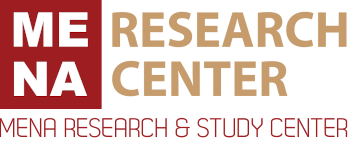In these days, less than four weeks before the crucial ballot, President Erdogan often acts like an actor in different roles: he threatens, he mocks, he begs his subjects. All signs of the mood he’s in, how insecure he’s become, how he’s still trying to win over undecided voters.
On May 14, the Turks will elect a new parliament and decide on the future of their president. Since Erdogan came to power in 2003, he has never had to fear an election defeat so much. Nevertheless, the opposition is also nervous. Which is due to the fact that it hasn’t won a national election in 20 years. Which in turn is because Erdogan is a gifted campaigner. He touches his audience in a way that few politicians can. His language and rhetoric alone is an art form: he uses eloquent and academic Turkish in his campaign speeches when he wants to address the urban educated middle class, but in the same speech he can shake the language of the street out of his sleeve when he wants to come across as close to the people. He is now 69 years old, he has made it from the streets of an Istanbul slum to the most powerful Turk since Atatürk, the founder of the state.
Erdogan has decided to focus his fight to stay in power in the area where tens of thousands lost their lives in February. He is aware that the political consequences of the natural catastrophe could also mean his own political downfall. Türkiye will overcome the tremors just like previous catastrophes, “from the Crusades to terrorist attacks. We turn the tears into a promise for the future.” The perception of crisis management will have an impact on the parliamentary and presidential elections. According to an unpublished Ipsos poll, 61 percent of those said they did not have their political preference changed, while 24 percent didn’t answer, 15 percent said the quake had changed their political preferences, which, it seems likely, are those who are dissatisfied with the way the government and state are handling the crisis If Erdogan and his AKP do not succeed in winning some of these voters back, they are threatened with defeat in the election.
Does he still believe in his victory? It can be heard from those close to him that his situation is assessed rather pessimistically, Erdogan has not yet found a strategy. The state apparatus can no longer be distinguished from the AKP: the sultan controls the system. It’s not a fair election, everyone knows that. If you follow the current Turkish news, you might think the country is a functioning democracy. There is the united opposition, whose representatives are talking to each other, debating how best to beat the president in the May 14 elections. In the evenings there are talk shows with political debates, opinions everywhere, very freely expressed.
In Türkiye, many share optimism about a new era, without Erdogan’s nepotism. But there is also skepticism, people believe him to be capable of everything – some for good, others for bad. Former supporters from his closest circle, who have since left him, describe Erdogan as a man who “no longer accepts criticism, not even constructive one”. Can the opposition defeat him this time? “It’s not about whether the opposition wins, but whether Erdogan loses.” Over 30 percent of voters identify with Erdogan, he is their man. And a clear majority votes right of center. The supporters of the united opposition have nothing to do with these people. Türkiye is divided.
And the opposition? It is only partially united: the pro-Kurdish HDP is not part of the alliance, because the opposition conglomerate consists of the social democratic CHP and the nationalist IYI party, which refuses to ever sit at the same table with the Kurds. The two co-leaders of the HDP have now announced that they will not nominate their own candidate in the presidential election. In other words, they support CHP head Kiliçdaroglu. Not officially as part of the opposition alliance. But as a member of the unofficial alliance called: All against Erdogan. “We will,” the HDP said, “end fascism in Türkiye.” They will “win together”. It is not even clear whether the HDP will be allowed to take part in the elections at all. It is in a legal process that is about her existence. The public prosecutor wants to have the HDP banned because it is the political arm of the PKK. So it could happen that the HDP disappears from the political landscape. Banned by a judiciary that has long ceased to be independent. The Kurds have experience with such attempts to silence them. That’s why they have a second party, the “Yeşil Sol Parti”, on whose list they want to enter parliament if necessary. Erdogan’s Islamists used to do it that way, and their parties had always been banned. And after the ban, they always re-established themselves under a new name.
Parties can be banned, but voters cannot. If the HDP is not allowed to stand in the elections, it would not be in parliament after May 14, but its supporters would still be able to vote in the presidential election, the crucial election given the president’s power.
All publishing rights and copyrights reserved to MENA Research and Study Center.



























